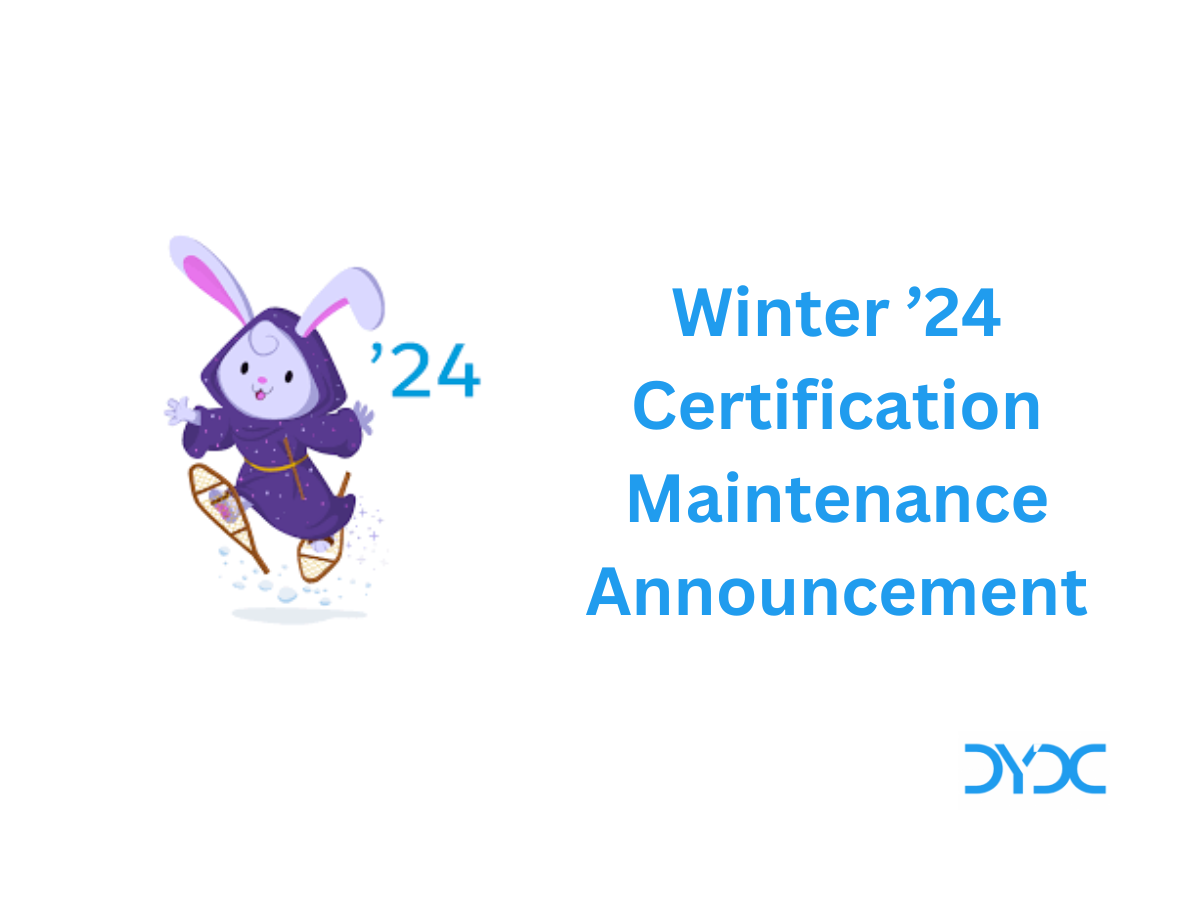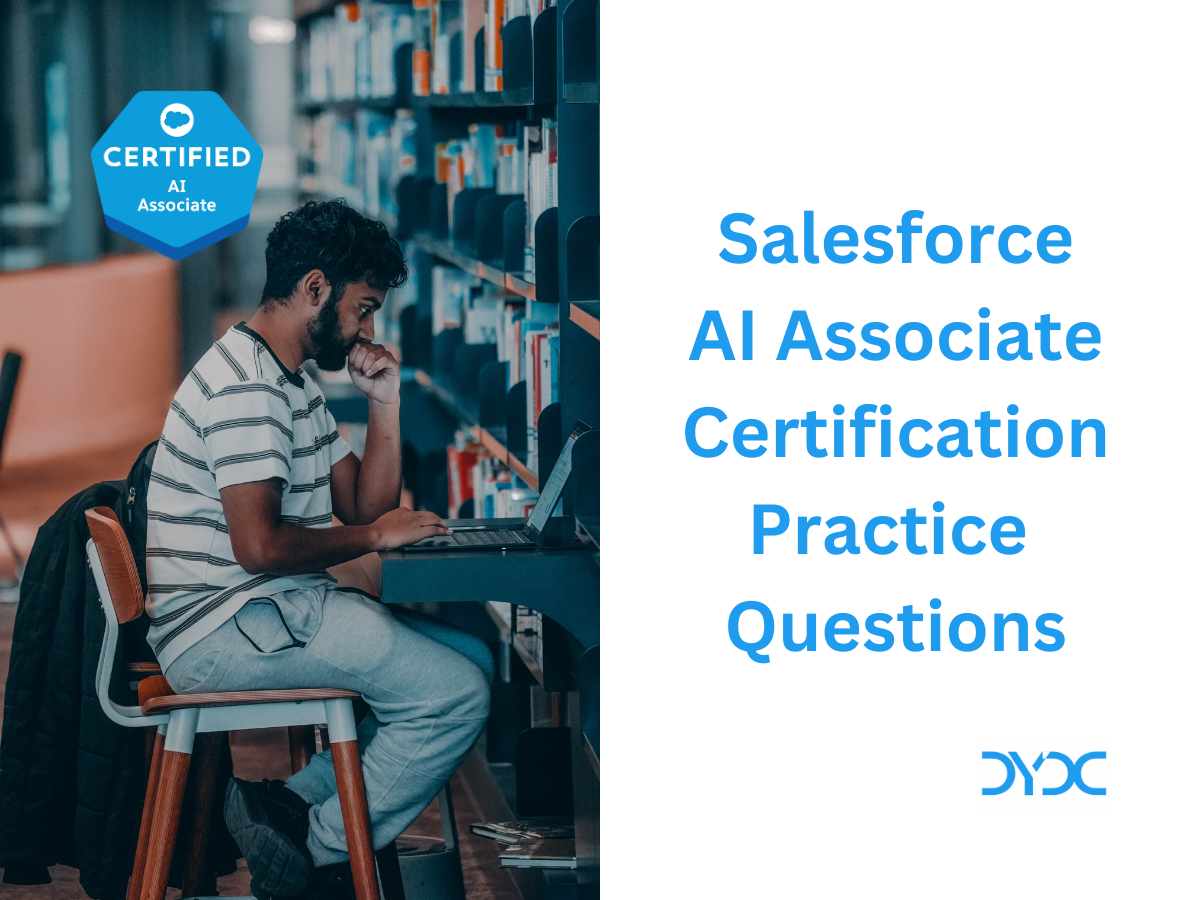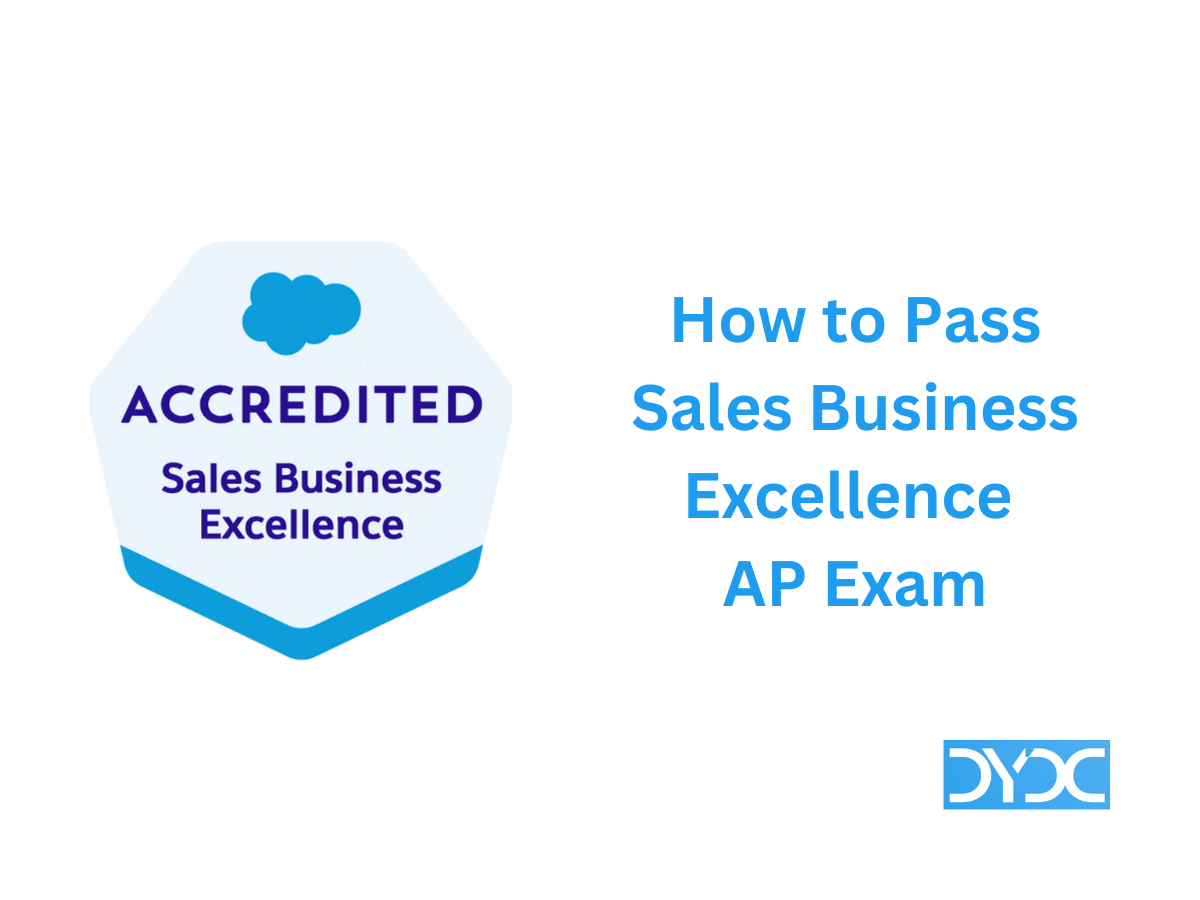The Salesforce Certified Marketing Associate credential is for individuals who are interested in an entry-level marketing role within the Salesforce ecosystem. This certification highlights the knowledge, skills, and abilities of an individual new to Marketing Cloud Engagement and general marketing concepts.
1. About the Salesforce Certified Marketing Associate Exam
| Content | 40 multiple-choice questions and up to 5 non-scored questions | |
| Time allotted | 70 minutes | |
| Passing score | 65% (26 out of 40 questions) | |
| Exam Fee | USD 75 plus applicable taxes | |
| Retake Fee | Free | |
| Prerequisite | None |
For up to date information about this certification please refer to the official exam guide here!
2. Salesforce Salesforce Certified Marketing Associate Exam Outline
2.1 Marketing Concepts: 28%
- Describe key components of a marketing strategy and how they align with the overall marketing purpose.
- Given a scenario, identify key requirements for implementing an effective email opt-in process in a marketing campaign.
- Recall the regional nature of privacy laws with respect to the subscriber base in order to uphold privacy standards in the context of marketing.
- Given a scenario, provide examples of basic email goals, metrics, and relative value in assessing the success of a marketing campaign.
- Given a customer experience scenario, summarize the type of content and message conveyed to the target audience.
2.2 Marketing Cloud Engagement Basics: 22%
- Identify solutions for regional or business related account structures as they relate to business units and corresponding permissions in Marketing Cloud Engagement.
- Apply essential features of Marketing Cloud Engagement (MCE) for marketing activities.
- Identify different Salesforce curated resources for assistance, training, and support when using Marketing Cloud Engagement.
- Differentiate between subscriber keys, contact keys, and contact IDs to uniquely identify subscribers.
- Given requirements, determine a proper Cloudpage form submission setup.
2.3 Email Sending and Journeys: 22%
- Outline the necessary configurations to activate a journey and configure entry criteria for a successful activation.
- Given a scenario, identify the recommended configuration for the email send wizard settings.
- Distinguish between template components and content blocks when building emails in Marketing Cloud Engagement.
- Given a scenario, identify which journey functionality should be used to address business needs.
- Given a scenario, identify how to accomplish content rendering validation.
2.4 Data Management: 18%
- Given a scenario, summarize the various data import mechanisms and requirements.
- Configure settings when creating a new data extension, including settings for data fields.
- Given a scenario, recommend the best way to interpret a data extension to identify the desired target data
2.5 Reporting and Analytics: 10%
- Identify where specific data can be found in Marketing Cloud Engagement.
- Interpret undesired send results and possible deliverability consequences.
3. Salesforce Salesforce Certified Marketing Associate Exam Study Course
4. Important Topics for the Salesforce Certified Marketing Associate Exam
4.1 Marketing Concepts: 28% (11 Questions)
- Email Subject Line Best Practices
- Keep them short and sweet. Short and medium-length subject lines have higher open rates than long ones, which ultimately affects conversion rates.
- Use your branding to your advantage. Limiting the length of your subject line doesn’t mean you have to sacrifice style. Infuse your brand into the messaging and take advantage of brand loyalty.
- Test, test, and test again! This is how you determine which subject lines yield the best results.
- The Skinny on A/B Testing. At its core, A/B testing takes two versions of your email, and tests to see which one works better.
- Great CTAs (Call to Action) are:
- Urgent: Use CTAs that create a need for urgent action.
- Brief: State the CTA briefly, with no more than five words.
- Action-oriented: Begin your CTA with a verb (download, register, buy, save).
- Clear and predictable: Be clear and link to a place that doesn’t surprise subscribers.
- Limited and visible: Focus subscribers’ attention on one to two prominent CTAs.
- CAN-SPAM guidelines:
- Accurately identify the sender in the header information.
- Use a subject line that accurately represents the content of the email.
- Identify the message as an advertisement.
- Include your physical mailing address.
- Honor opt-out requests promptly. Process an unsubscribe request within 10 days, and keep your unsubscribe mechanism operational for at least 30 days after the mailing.
- Provide a mechanism to opt out. You cannot require a subscriber to log in or visit more than a single page to unsubscribe.
- Omni-Channel Digital Marketing: Quick Look
- Personalized Email Marketing
- The profile center is a webpage where subscribers can provide and update their personal information and basic preferences (or attributes). Any attribute you store about a customer shows up on their profile center (things like email, gender, and name).
- A subscription center is a page that identifies which messages a subscriber receives from your business.
- Email Deliverability
- Marketing Cloud Sender Authentication Package (SAP) is used to customize links and images to match the branding of the authenticated domain that you’re sending email from.
- A Sender Policy Framework (SPF) record is a list of IP addresses that are allowed to send email from your domain. The IP list authenticates that email from your domain is from you and helps protect your brand by reducing the chance that your email is mistaken for spam.
- Subscriber replies processed and forwarded by Marketing Cloud’s reply mail management (RMM) feature can be rejected at their destination due to authentication failures if the header is left untouched. To resolve this issue, use DMARC Forward Reply Rewrite to wrap the message in an authenticated domain.
- A/B Testing in Email Studio
- A/B Testing is a market testing method in which you send two versions of your Marketing Cloud Email Studio communication to two test audiences from your subscriber list. Track which version receives the highest unique open rate or highest click-through rate and send that version to all remaining subscribers.
- CAN-SPAM Act: A Compliance Guide for Business
- The CAN-SPAM Act, a law that sets the rules for commercial email, establishes requirements for commercial messages, gives recipients the right to have you stop emailing them, and spells out tough penalties for violations.
- CAN-SPAM’s main requirements:
- Don’t use false or misleading header information.
- Don’t use deceptive subject lines.
- Identify the message as an ad.
- Tell recipients where you’re located.
- Tell recipients how to opt out of receiving future marketing email from you.
- Remember that subscribers and members can opt out of marketing emails, too.
- Honor opt-out requests promptly.
- Monitor what others are doing on your behalf.
- Email can contain three different types of information:
- Commercial content – which advertises or promotes a commercial product or service, including content on a website operated for a commercial purpose;
- Transactional or relationship content – which facilitates an already agreed-upon transaction or updates a customer about an ongoing transaction; an
- Other content – which is neither commercial nor transactional or relationship.
- Confused By New Data Privacy Laws? Start Here
- Things to consider for California Privacy Rights Act (CPRA) compliance and the future:
- Know the restrictions on targeted advertising and third-party data. Each of the U.S. state privacy laws directly regulates tracking consumers across various websites and mobile apps for targeted advertising.
- New privacy rules mean greater control for consumers. This includes the right to be forgotten (delete my data), access and portability (give me a copy of my data), and restriction of processing (stop further use of my data).
- Data minimization means rethinking your whole process. Data minimization requires organizations to collect and use data only to the extent necessary.
- California Consumer Privacy Act Basics
- The California Consumer Privacy Act (CCPA) law gave California residents broad new rights, such as:
- The right to know what categories of Personal Information businesses are collecting about them
- The right to know whether businesses are Selling their Personal Information and to whom
- The right to prohibit businesses from Selling their Personal Information
- The right to access their Personal Information
- The right to request that a business delete their Personal Information
- The right to equal services and pricing when exercising rights under the CCPA
- The CCPA requires that Businesses engaged in activities that constitute a Sale under CCPA provide “a clear and conspicuous link on the Business’ website, titled Do Not Sell My Personal Information,” that leads to a page that allows a consumer to opt out of the Sale of their Personal Information.
- Salesforce has carefully prepared for the CCPA. Salesforce qualifies as a Service Provider under the CCPA and is dedicated to helping our customers comply with the CCPA when using Salesforce services. Salesforce customers who previously signed our Data Processing Agreement (DPA) likely already have adequate terms meeting the requirements of the CCPA.
- European Union Privacy Law Basics
- General Data Protection Regulation (GDPR) establishes rules for how companies, governments, and other entities can process the personal data of data subjects who are in the European Union.
- Key Principles of GDPR:
- Fairness and Transparency – Organizations must always process personal data lawfully, fairly, and in a transparent manner.
- Purpose Limitation – Organizations can collect personal data only for specified, explicit, and legitimate purposes. They cannot further process personal data in a manner that’s incompatible with those purposes.
- Data Minimization – Organizations can collect only personal data that’s adequate, relevant, and limited to what’s necessary for the intended purpose.
- Accuracy – Personal data must be accurate and, where necessary, up to date.
- Data Deletion – Personal data must be kept only for as long as it’s needed to fulfill the original purpose of collection.
- Security – Organizations must use appropriate technical and organizational security measures to protect personal data against unauthorized processing and accidental disclosure, access, loss, destruction, or alteration.
- Accountability – A data controller is responsible for implementing measures to ensure that the personal data it controls is handled in compliance with the principles of the GDPR.
- Digital Marketing Roadmap Development
- The four elements of marketing strategy:
- Know your audience.
- Create great content.
- Analyze results.
- Evolve your strategy.
- SMART success metrics:
- Specific—You can define the goal in a clear and precise manner.
- Measureable—You can assign a number or checkpoint to the goal.
- Achievable—You can actually attain the goal.
- Relevant—You can apply the goal to your work.
- Time-based—You can set a certain time period to achieve the goal.
- A governance framework team should focus on specific areas: people, process, and technology in relation to their defined objective or goal.
- People – Identify and train the people needed to implement the strategic plan.
- Process – Identify, prioritize, and drive the execution of processes that support transformation.
- Technology – Have the proper tools and technology to be successful.












